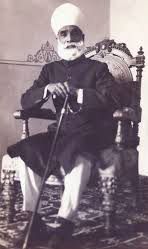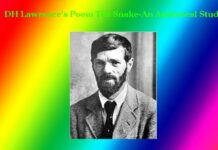Nizamat Jung Golconda at Sunset | A Critical Analysis
Nizamat Jung Golconda at Sunset
Nizamat Jung Golconda at Sunset | A Critical Analysis
‘Golconda at Sunset’ by Nizamat Jung is a poem written on a historical theme. Golconda was a small Indian kingdom ruled by a series of Indian kings. It was a prosperous beautiful kingdom. During the British rule in India, it lost its independence and was annexed to the British-Indian Empire. The poet has written the poem praising its beauty at sunset. It is romantic in treatment, elegiac in feeling patriotic in ideal and simple and lyrical in language.
First, the poet praises its beauty at sunset. With the setting of the sun, the night was coming on. The last rays of the sunlight fell on the buildings, castles and palaces of Golconda. The evening star was shining faintly in the silent sky. It had lost its independence but its buildings and palaces were proudly standing that proclaimed its past fame. The king of it was bereft of power and the city did not lose its fame. The poet says:
”Bereft of power though not of fame
Custodians of the past, they stand
In mournful grandeur yet to claim
Dominion over the subject land.”
The fortresses of the city were still survived proclaiming its triumph over its foes. The main city of it was circled by ramparts, and hills which gave protection from the foes and invaders. But now the poet laments that there is no need for the tower and of the bastion-girded wall as it has no king to govern. The king is dethroned and the kingdom has fallen down.
Secondly, the poet Nizamat Jung reminds the past history of the kingdom and laments how the kingdom lost its freedom. The last king of Golconda was the gentlest of his line. His warriors were brave and heroic enough to protect the king. But now their swords shine in vain because their king and kingdom are no more. The king himself was a brave hero, but when he was defeated by his foes then he was chained as a captive and had been exiled. Now with the passing of days, he is praised by all. But the victorious king who took over the sway of Golconda is facing the same tragedy. Treason arose behind him and foes are in front of him. At last, the empire comes to an end.
Thus the above analysis of the poem has clarified that it is a romantic and elegiac poem with a patriotic theme. The description of the city of Golconda at sunset and the poet’s interest in the past fame and glory of the city is really romantic.
In language, the poem is lyrical as it is written in the scheme of abab rhyme scheme. The poem ‘Golconda at Sunset’ is free from the use of the figure of speech except for some use of alliteration as: ‘mosques and minarets’; ‘garb of grey’; ‘silence sleep’ and so on. 0 0 0
Nizamat Jung Golconda at Sunset
Read More: The Poetry of Nizamat Jung-Chief Features
N. B. This article entitled ‘Nizamat Jung’s Poem ‘Golconda at Sunset’-A Critical Analysis’ originally belongs to the book ‘Indian English Poetry Criticism‘ by Menonim Menonimus. Nizamat Jung Golconda at Sunset
Books of Literary Criticism by M. Menonimus:
- World Short Story Criticism
- World Poetry Criticism
- World Drama Criticism
- World Novel Criticism
- World Essay Criticism
- Indian English Poetry Criticism
- Indian English Poets and Poetry Chief Features
- Emily Dickinson’s Poetry-A Thematic Study
- Walt Whitman’s Poetry-A Thematic Study
- Critical Essays on English Poetry
- Tawfiq al-Hakim’s Novel: Return of the Spirit-An Analytical Study
- Tawfiq al-Hakim’s Novel: ‘Yawmiyyat Naib Fil Arayaf’-An Analytical Study
- Analytical Studies of Some Arabic Short Stories
- A Brief History of Arabic Literature: Pre-Islamic Period …
Books of Composition by M. Menonimus:
- Advertisement Writing
- Amplification Writing
- Note Making
- Paragraph Writing
- Notice Writing
- Passage Comprehension
- The Art of Poster Writing
- The Art of Letter Writing
- Report Writing
- Story Writing
- Substance Writing
- School Essays Part-I
- School Essays Part-II
- School English Grammar Part-I
- School English Grammar Part-II..
Related Searches:
- The Individual and Society-Guide Book
- The Individual and Society-DU Notes
- The Golden Treasury of Indo-Anglian Poetry
- Indian Poetry-A Survey by Satish Kumar
- The Harp of India-Henry Derozio
- ‘To the Moon’-Henry Derozio
- Night of Slaughter Duryodhan’s Death
- Ramesh Chunder Dutt’s Poem ‘Sita Lost’
- The Wizard Knight’
- ‘King Porus A Legend of Old’
- The Shair A Poem
- To a Dead Crow
- Rebirth by Nizamat Jung …











